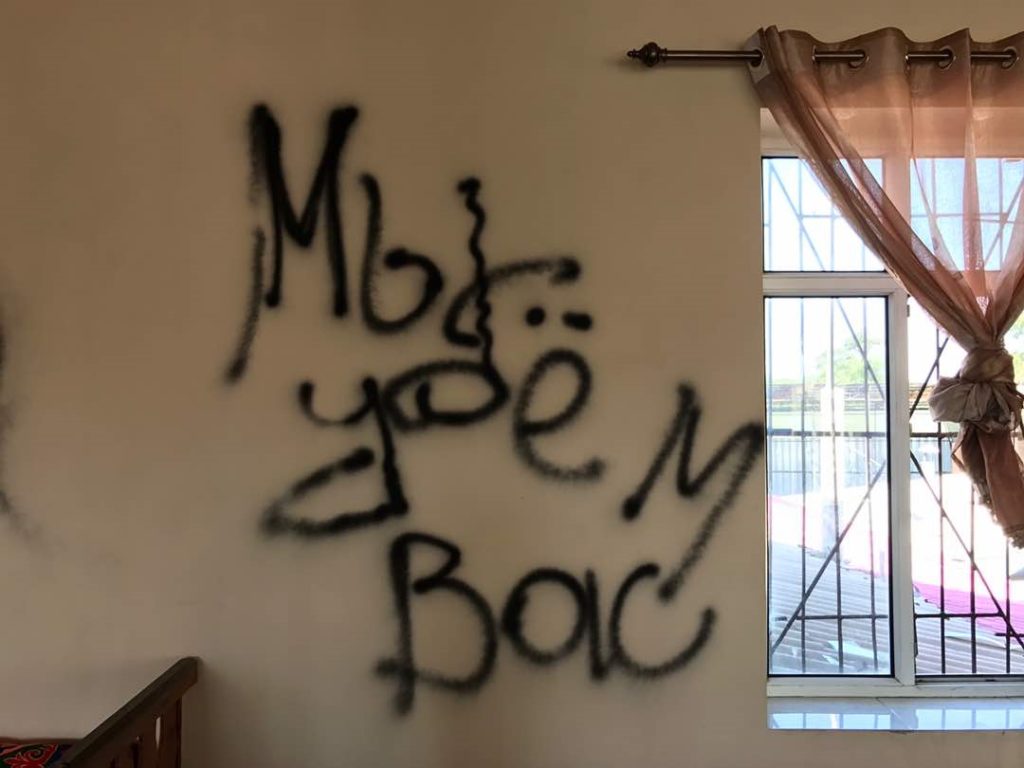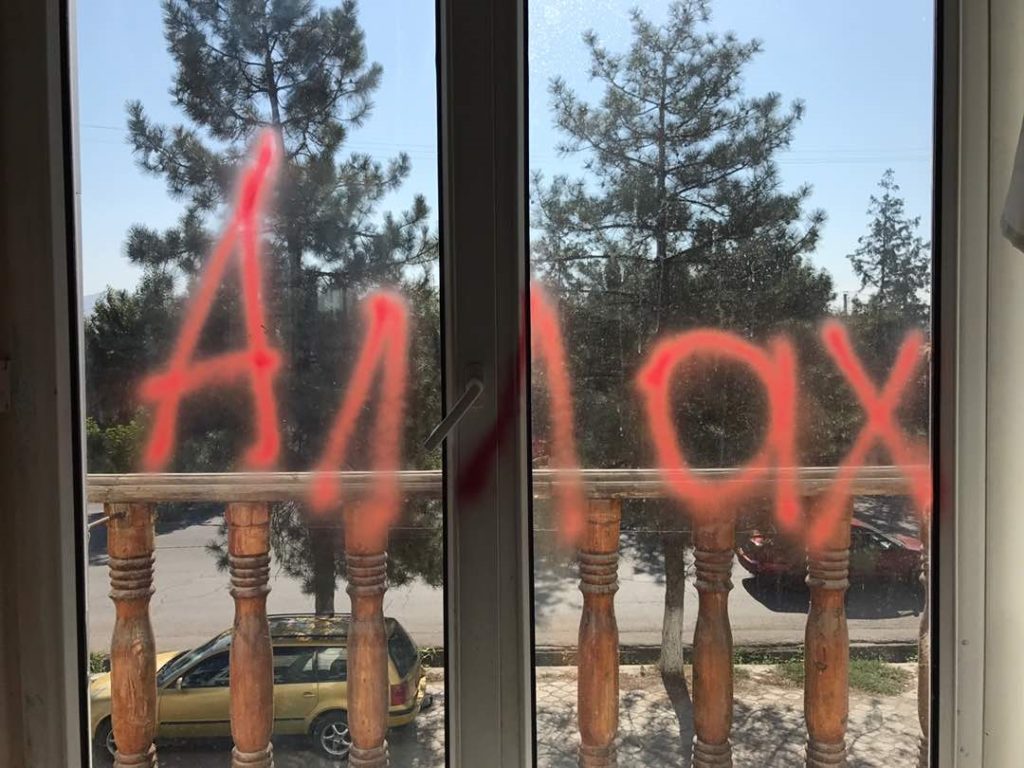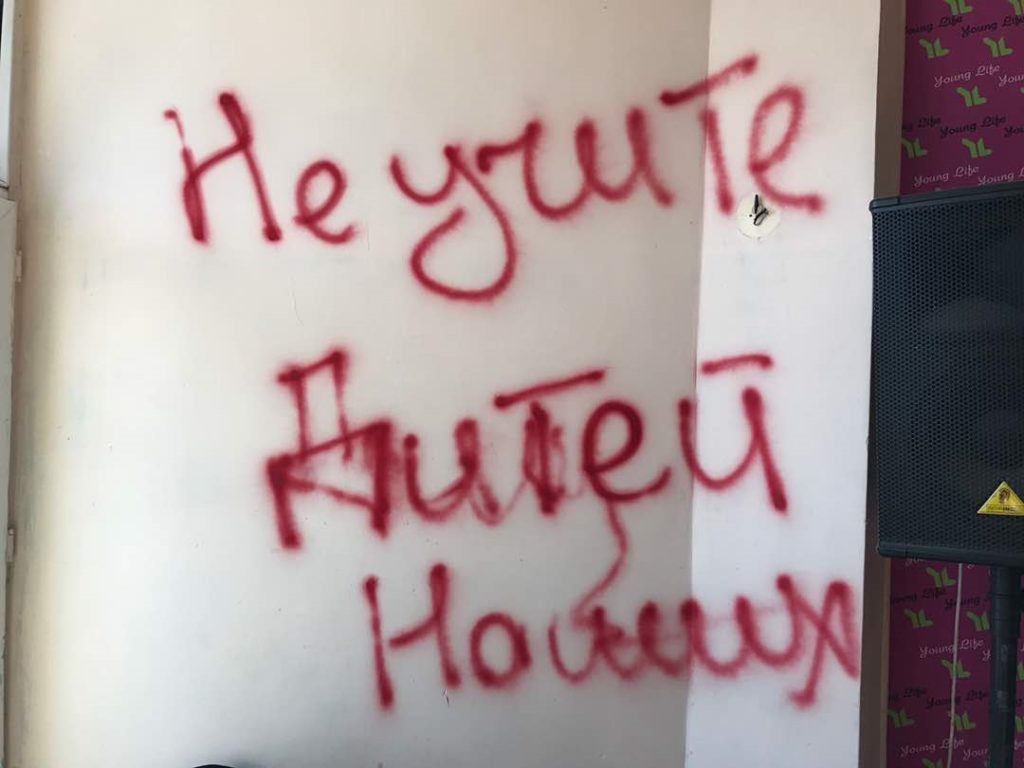
A church in the northern Kyrgyzstan city of Tokmok had a death threat sprayed across one of its walls following a night-time robbery last week.
Sources told World Watch Monitor that the graffiti was by local Islamic radicals who broke into the church building, damaged furniture and wrote: “We will kill you,” “Don’t teach our children,” and “Allah” across walls and a window.
The church leader reported the incident to local police as soon as it was discovered. However, an officer said it was pointless looking for the perpetrators as it was a crime that would be impossible to solve.
Services and outreach activities at the church have continued but the pastor is now planning a security seminar for the safety of the congregation, who were “rather stressed” by the attack. The source added that “police and the authorities will stay away from this case because they do not want to help Christians”.

Why was the graffiti in Russian?
Writing graffiti in Russian – albeit with spelling mistakes – means it’s understood by members of the city-based church, where the language of the former Soviet Union is still used for preaching and church communications. Kyrgyz, which is more likely to be spoken in rural churches, is, with Russian, one of the country’s two official languages.

Kyrgyzstan dropped off the Open Doors World Watch List of the 50 countries in which it’s most difficult to live as a Christian for the first time in five years in 2015. This was said to be due to an increase in problems in other countries, rather than improvements in religious freedom in Kyrgyzstan. Converts from Muslim backgrounds face particular challenges, including difficulty finding places to bury their dead.
The vast majority of the country’s estimated 300,000 Christians belong to the Russian Orthodox Church.
“Compared to the other Central Asian countries, Christians fare relatively well,” according to Open Doors International. “But this should not be misunderstood as implying Christians and other religious minorities enjoy freedom of religion.”
